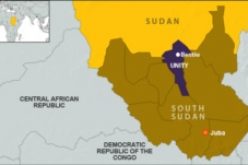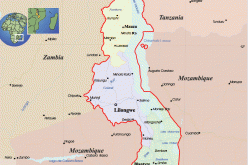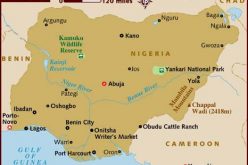 Pessured by the U.S. government’s anti-terrorism crackdown, a small Southern California bank is cutting off a crucial source of aid to families in war-ravaged Somalia — money wired from Somali immigrants in the United States.
Pessured by the U.S. government’s anti-terrorism crackdown, a small Southern California bank is cutting off a crucial source of aid to families in war-ravaged Somalia — money wired from Somali immigrants in the United States.
Merchants Bank of California said it planned to stop wiring the funds to Somalia on Friday, following in the footsteps of a string of other banks that cut off the service since giants Wells Fargo & Co. and US Bancorp ended such transfers nearly a decade ago.
The one-office Carson bank had become a last resort for about a dozen money-transfer businesses that collect funds in U.S. offices and disperse them in Somalia, which has no connections to the international banking system or to such services as Moneygram and Western Union.
lRelated Who wins in the City National bank sale
BUSINESS
Who wins in the City National bank sale
SEE ALL RELATED
8
Somali-Americans said some relatives will be unable to afford food, clothing, rent or school fees if it becomes impossible to send money because of fears of illicit fund transfers to terrorists such as the Shabab, an Islamic militant group with ties to Al Qaeda.
“If this is shut down, it means people are not going to eat,” said caseworker Ali A. Mohamed at East African Community of Orange County in Anaheim, where an “Einstein was a refugee” poster hangs on a wall of the nonprofit for immigrants.
“Shutting down this option is like burning down the whole house to get one rat,” Mohamed said.
Somali expatriate Sadiq Yusuf Mohamud of Minneapolis, who immigrated in 1996 and became a U.S. citizen in 2008, sends $700 a month to five households of his own relatives in Somalia, Kenya and Ethiopia.
cComments
Good! Can’t fund terrorism!!!
EL GUAPO
AT 6:44 PM FEBRUARY 05, 2015
ADD A COMMENTSEE ALL COMMENTS
1
Remittances to Somalia are “a matter of life and death,” said Mohamud, who works as a liaison between school districts and Somali immigrants. “It’s the difference between hunger and hope. What we send feeds the empty stomachs that nobody else will be able to feed.”
The money-moving network and Somalia itself are on regulators’ high-risk lists for money laundering. That has rendered them so undesirable that most of them have been unable to get accounts at other U.S. banks, their representatives said.
The small money-transfer offices are able to disperse funds quickly, for a 5% service fee, to agents in the smallest desert villages of one of the world’s poorest nations, where the major industry is tending herds of animals.
But they depend on banks to wire the funds internationally, and their representatives estimated that Merchants Bank had handled about two-thirds of the business, estimated at more than $200 million in annual transfers from the U.S.
Oxfam America, an arm of the British international anti-poverty nonprofit, estimated that global money transfers from Somali refugees and emigres to relatives in the nation total $1.3 billion a year, more than the combined foreign government aid and private investment from all sources in the world. The CIA has estimated Somalia’s gross national product at $6 billion a year.
“With Merchants closing, you will see less money to people who need it, and the flows that do go through will be going underground and become much more vulnerable to criminal networks,” said Scott Paul, an Oxfam senior policy advisor.
“The Somalis are being thrown under the bus while the same criminal networks the U.S. is intent on defeating in Somalia are going to have a huge opportunity,” Paul said.
By one economic measure, the CIA says Somalia ties with Zimbabwe and Burundi as the second-poorest among 228 nations in the world, ahead of only the Democratic Republic of the Congo. It tied with North Korea and Afghanistan for last place among 177 countries in Transparency International’s 2013 Corruption Perceptions Index.
Rep. Keith Ellison, a Minnesota Democrat whose district includes many Somali-Americans, said he had asked Merchants Bank, which operates under a national charter, to continue wiring funds because no other banks can fill the void.
“You have a few scattered state banks here and there, but not with the experience and wherewithal that Merchants Bank has,” he said. “What that means is that Somalis who want to get money to their relatives will have to carry it in a suitcase, which is legal but obviously has extraordinarily high risks.”
Officials at Merchants Bank declined to comment. The bank is operating under a 42-page cease and desist order, issued in June, from the Office of the Comptroller of the Currency, a Treasury Department arm that regulates national banks.
The OCC found the bank’s anti-money laundering procedures inadequate and ordered it to better determine the source and destination of the funds it was wiring.
Merchants initially had said it would continue wiring funds while trying to comply. But in a Jan. 27 letter to the money-transfer business clients said it would have to cut them off.
“We cannot in good faith meet the obligations of the [OCC order] given the complexity of your business,” the letters said.
An OCC statement said the agency does not encourage banks to cut off entire categories of customers, but requires them “to assess the risks posed by customers on a case-by-case basis” and adopt commensurate controls.
The agency has imposed no restrictions on money-transfers to Somalia, Deputy Comptroller Grovetta Gardineer said.
“The Somali situation is a terrible human tragedy that cannot be solved by bank regulators,” Gardineer said. “Rather, it requires an international government and private-sector effort involving organizations that have greater expertise in providing humanitarian assistance and building the infrastructure necessary.”
Oxfam’s Paul and representatives of the network of transfer offices said regulators should draw up a detailed to-do list enabling banks that comply with the requirements to be presumed to be acting responsibly in transferring funds.
“We don’t know the requirements the OCC wants so the banks can safely handle our accounts,” said Aden Hassan, chief compliance officer for Kaah Express, a Minneapolis money-transfer service with 36 locations in nine states.
Hassan said Kaah has accounts in two states with banks he would not identify. He said many other companies, with no bank accounts other than at Merchants, were not so fortunate.
“They’ll be shutting down on Friday unless Merchants is generous enough to grant an extension,” he said. “I won’t be surprised if they don’t.”










